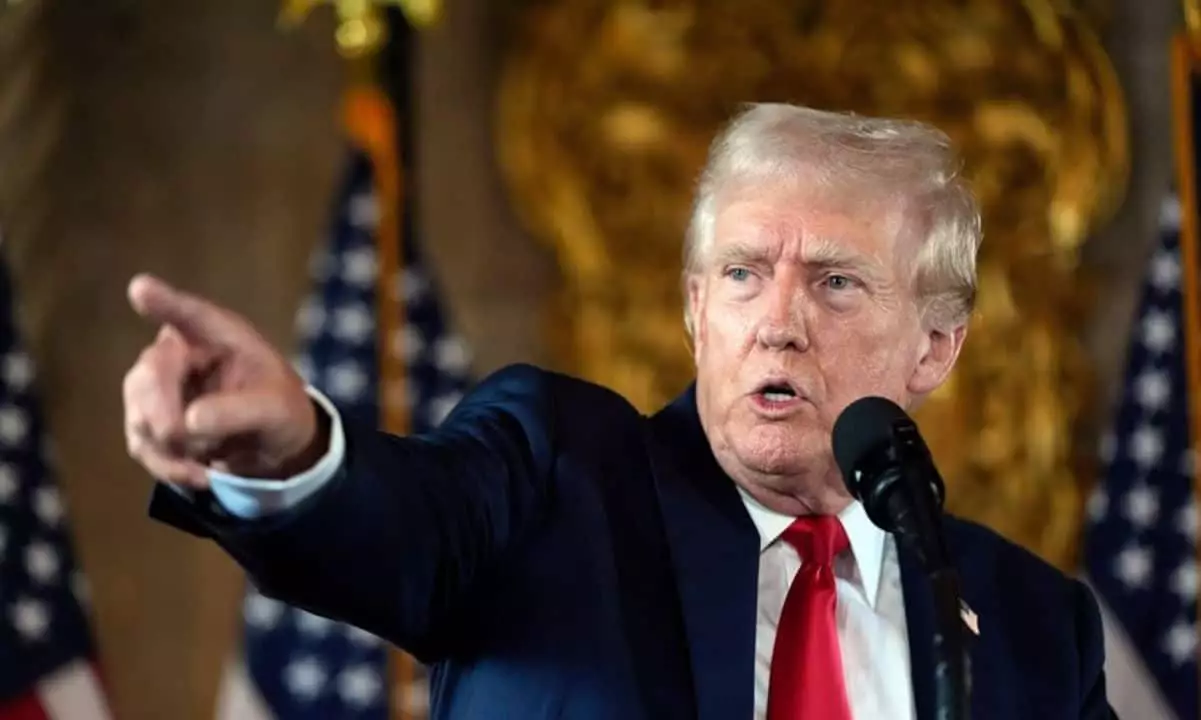The intersection of finance and politics has become a prominent theme in recent years, particularly as various industries seek to protect their interests. The cryptocurrency sector has emerged as a significant player in this landscape, with notable venture capitalists like Marc Andreessen and Ben Horowitz making substantial donations to pro-Trump super PACs. Their contributions, each totaling $2.5 million to a political action committee named Right For America, highlight a targeted effort to shape political outcomes favorable to the crypto industry.
Andreessen and Horowitz’s support for Trump stems from their perception that his policies align with the needs of the “little tech agenda,” a term that signifies their advocacy for startups and emerging technologies. As the cryptocurrency industry has faced increased scrutiny and regulation, the backing of influencers in the tech world underscores a strategic maneuvering to ensure a conducive environment for its growth. Furthermore, Andreessen’s additional contribution of the legal maximum of $844,600 to Trump’s campaign and associated Republican factions reinforces this notion of calculated political engagement.
Additionally, Horowitz’s unexpected intent to support Vice President Kamala Harris raises questions about the shifting allegiances within the tech and crypto sectors. Although he claims to endorse Harris, little is publicly known about her stance on cryptocurrency, creating a juxtaposition that reflects the chaotic landscape of modern political affiliations.
Notably, Chris Larsen, the co-founder of Ripple, made headlines by donating $1 million worth of XRP tokens to Future Forward, a PAC supporting Harris. This unusual choice prompts discussions about the complexities of aligning with political figures whose policies may not fully resonate with industry concerns. The backdrop of Larsen’s donation is critical; Ripple has been embroiled in a lengthy legal battle with the SEC since 2020, amplifying the stakes involved in aligning with a candidate who may or may not be favorable to the crypto sector.
The financial landscape for pro-Trump super PACs is robust, with Right For America having amassed nearly $28 million in funding and maintaining a substantial war chest for strategic deployment in key swing states like Arizona, Georgia, and Pennsylvania. This financial muscle not only indicates high-stakes political gambles but also exemplifies the growing appetite for cryptocurrency advocacy in elections, particularly as they intersect with regulatory discussions.
The evolving financial dynamics in politics reveal that the crypto sector is increasingly leveraging political contributions to influence regulation and market conditions. As entities like the Fairshake PAC gather momentum—having raised over $200 million—it is clear that the stakes are high. The continuation of this trend raises questions about the ethical implications of such large financial contributions and whether they truly embody democratic values or merely reinforce the power of a few wealthy donors.
As the cryptocurrency industry expands its political footprint, the ramifications of these donations—both for the political figures receiving them and the industry itself—remain to be seen. The strategies employed by influential figures in tech may very well determine the trajectory of regulatory frameworks surrounding digital assets. The intersection of money and politics, particularly in the fast-evolving sector of cryptocurrencies, is not merely a trend; it signals a broader shift in how industries mobilize for political influence in an increasingly complex landscape.



Leave a Reply